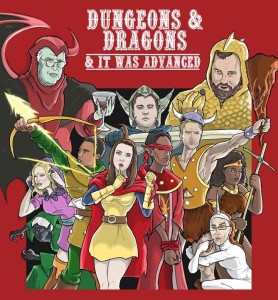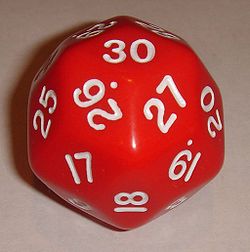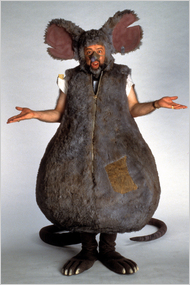If you’re an avid fan of tabletops (as I am), you know that nothing is more fun than a successfully executed game. Whether you measure that success by missions, story arcs, or until it’s gone on so long everyone gets bored with it, a table-topgame is much more satisfying when it’s done well, and it’s done right. It’s one thing to develop a character and simply play in a game, but it’s a whole other world to actually be the one in charge. Crafting story elements that will both entertain and satisfy your group is just as important as the group makeup itself. There’s a certain amount of skill that goes into a successfully run campaign. For example, while useful, being a good writer isn’t always a requirement. Indeed, an exciting tabletop game requires a unique blend of theater, writing/story-telling, and creativity.
I assume that if you are reading this article, you’ve likely at least made a character and played an RPG a few times. Perhaps you’ve even GM’d a game or two. Was it successful? What made it work? If it wasn’t, what made it crash and burn?
I’m here to offer some tips and advice for aspiring and veteran GMs alike. These are just a simple few tips that I’m offering at the moment. Soon, I’ll be writing more in-depth pieces to offer additional advice and tips on being a successful GM and creating enjoyable pen and paper experiences for your entire adventuring party.
For now, here are three core principles to live by:
Know Your Setting
One of the most fundamental tips for successfully running any campaign is to know the system you intend on running. Every system has limitations, whether it’s NPC stats or setting development. Learn them. You can’t create a futuristic Armageddon campaign with warships and laser weapons within the D&D universe. Likewise, a fantasy dungeon crawl may not translate so well into GURPS. If you intending on running a Buffy: the Vampire Slayer game, then any avid fan of the TV show will know most of the mythos and story behind it. You don’t want to seem uninformed. If you’re going to jump into a system such as Shadowrun, with its detailed 75-year history behind it, understand that there is going to be some research involved. Not everything is it is common knowledge.
In short: do your homework. It’s a unique talent to be able to open a sourcebook and craft an enjoyable campaign on the fly. Most people will have to put some effort into knowing the background of the system – this is normal. Remember: if you have other players also new to that particular setting, as the GM they’ll be looking to you for better understanding.
Know Your Rules
This should be a given if you’re deciding to run a game, but learn what you are about to be orchestrating. Don’t bring your d20 set to a Werewolf game. Don’t bring your giant brick of d6s to your Pathfinder game. There’s a large variety of tabletops out there in the world and while at least half will probably run a d20 system, knowing the game you intend to run is a crucial step. Understand the different attributes and skills. Know the most common roles that your group will come across. My core group of tabletop players is big on perception tests and judging the intentions of NPCs. Therefore, when I’m running a game, I have to know which roles those are in the system that I’m running.
Additionally, know what all those pesky numbers mean. A skill with a rating of 6 in Shadowrun signifies an expert knowledge, while a skill check of 6 in Pathfinder is mediocre at best. It’s also good to understand how feasible the given system is for rolls and checks. With a d20 system, for instance, a character’s possible results are from the skill level plus one, to the skill level plus two (natural 1s and 20s aside). For other systems, such as White Wolf or Shadowrun where you are rolling multiple dice, it’s important to understand the odds of a character having a success. If a vampire is trying to use Dominate on someone, what are the chances the vampire gets more successes when rolling 7 dice against a target rolling 3? How about if the target is rolling 9 dice? I know it sounds a like math word problems from grade school, but having that information readily available is a huge asset to the GM’s success. Being able to conceptualize the possibilities and realistic odds of potential situations is an important part to crafting a campaign. You don’t want to make things too difficult to early, too simple farther in.
Foster Creativity
Everyone has their ideal character, with an ideal background and ideal skills. Sometimes, a game’s core mechanics can’t support everyone. Be flexible with your players. One time when running a Shadowrun game, a player wished to play a were-rat creature. Shadowrun’s 4th Edition has no statistics for a shape shifting rat. So I made it up! Using what stats were available for other were creatures, I crafted a reasonable template for what the player wanted.
Likewise, if your players want to do something that’s not in the system, it’s your imperative to see if you can make it work within the confines of the world envisioned and the story being portrayed. There’s plenty of room for leniency in any system, and if a character has a unique idea that will fit in the campaign but the rules don’t provide for it, then help them to get there.
Also, stress the importance of character development. Any quality geek can sit down with a game system and create all types of characters on paper, but what makes a campaign successful is the depth of those characters. Encourage your players to develop character backgrounds and storylines. Dangle extra experience points or character creation bonuses in front of them, if you have to. One of the best aspects of being the GM is taking those character backgrounds and weaving them into the game. You’ll give your players a more personal perspective of the game, and, by showing a desire to incorporate their contributions into the plot arc, you’re giving them more reason to be interested. More importantly, you’re also giving them a reason to stay interested.
![]()
Joe Bouchard is an avid gamer and is a regular contributor to the site. A 15 tabletop veteran, he spends his Friday nights at the local college rolling dice with people mostly even older than him. His current tabletop is Shadowrun 4th edition. He can be reached at joe@cardboardrepublic.com.
Are there any groups you feel are missing? You can discuss this article and more on our forums!
Photo Credits: Animated D&D / Community by Ben Deguzman.



